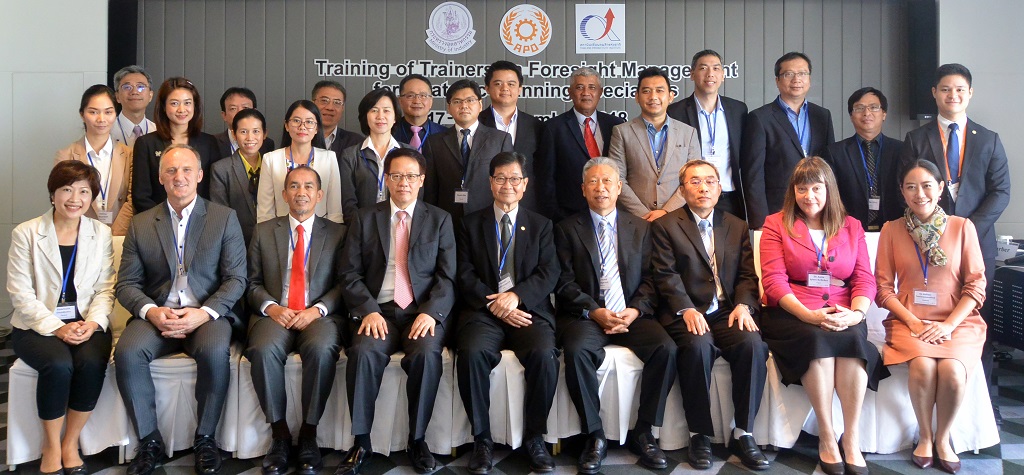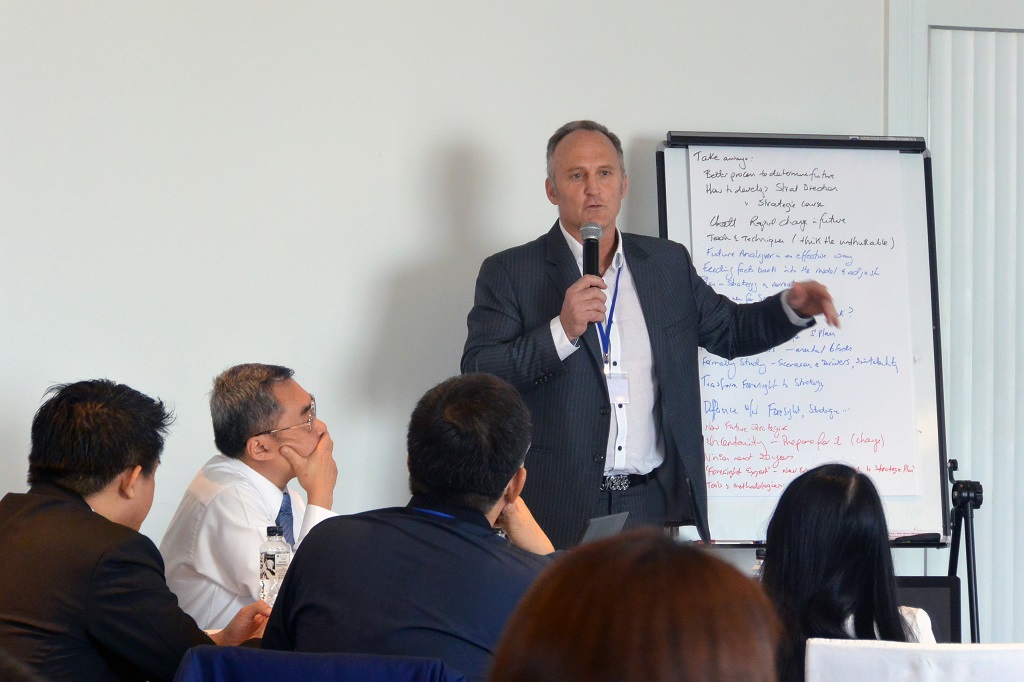
Select Page
As the pace of change accelerates and global interdependencies grow increasingly complex, relying solely on traditional planning processes leaves policymakers exposed to greater risk and uncertainty. To equip public-sector organizations in member countries with the fundamentals and principles of strategic foresight and scenario planning, the Asian Productivity Organization (APO) along with the Thailand Productivity Institute (FTPI) is conducting a five-day training-of-trainers course on Foresight Management for Strategic Planning Specialists in Bangkok, 17–21 September 2018.
Strategic foresight as a planning tool refers to a stepwise method of anticipation to identify strategic opportunities and potential threats that may occur in the long-term future. The system requires constant scanning of external environmental factors and analysis of information to create plausible futures that organizations would like to achieve. The APO recognizes that governments and organizations in member countries can use strategic planning for effectively allocating resources and designing policies most suited to creating their desired futures.
This is the second of three initial APO projects to promote awareness of foresight practices and develop a pool of trainers who can disseminate know-how on strategic foresight to increase readiness for the more interdependent, complex world of the future. Twenty-two participants, including four observers, from six APO member countries are attending the training course in Bangkok.

 In welcoming the participants, APO Alternate Director for Thailand Dr. Phanit Laosirirat mentioned that several organizations in Thailand, including the FTPI, were exploring the use of strategic foresight and scenario planning in areas such as drug policy and food security. He pointed out that the FTPI had been examining ways to apply strategic foresight since last year. Dr. Phanit hoped that the APO project would help the FTPI and other organizations in developing long-term strategies to meet their future requirements.
In welcoming the participants, APO Alternate Director for Thailand Dr. Phanit Laosirirat mentioned that several organizations in Thailand, including the FTPI, were exploring the use of strategic foresight and scenario planning in areas such as drug policy and food security. He pointed out that the FTPI had been examining ways to apply strategic foresight since last year. Dr. Phanit hoped that the APO project would help the FTPI and other organizations in developing long-term strategies to meet their future requirements.
During his opening address, APO Secretary-General Dr. Santhi Kanoktanaporn noted that organizations often did not dedicate enough time and attention to thinking about the future compared with looking at the past. This, he pointed out, was like driving a car by looking only in the rearview mirror. The Secretary-General stressed that it was important to view the future when deciding on the strategic direction of an organization. Dr. Santhi also explained that the training course had been designed to showcase how foresight units could be set up within government organizations.
The five-day APO training-of-trainers course focuses on exposing government officials to the principles and practices of strategic foresight and walking them through practical scenario planning processes. It will culminate in the development of multiple scenarios centered around key issues and uncertainties affecting the Asia-Pacific. The project is being conducted by two APO-assigned international experts: Director of Designer Futures Dr. Anita Sykes-Kelleher; and Director of Looking Up, Feeling Good Marcus Barber. Both are co-founders of the Australian Center for Strategic Foresight.
Strategic foresight and scenario planning consist of a set of practices encouraging strategic planners and other key stakeholders to reflect on and hold strategic conversations on the future. This process of structured, systematic anticipation helps to identify opportunities, threats, and uncertainties that may arise in the mid- to long-term future, helping organizations to develop more robust strategies and become future-ready.